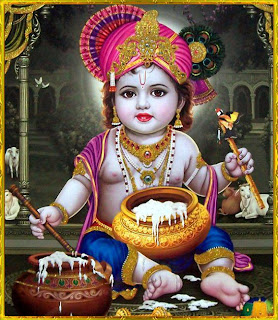continued......
Activity and inactivity in other words are also called “Pravritti” and “Nivrtti” respectively. Every “Pravrtti” is turning into “Nivrtti”. During “Pravrtti” (activity) also there is an automatic deterioration towards the end. All activities such as sleeping, awakening, sitting, moving,
hearing, speaking are pacing towards extinction. This continuous process of decay is endless. Such process of decay is described in the Gita as - “The modes (of Nature) are acting on the modes” (Gita 3/28) and “The senses move among the sense-objects” (Gita 5/9).
We perform activities to gain material objects. But actually there is no gain because they are perishable. For example, wealth is considered to be acquired but actually it is departing. If a person has to
remain rich for fifty years and one year has passed, now he will not remain rich for fifty years, because one year of his richness has passed by. Similarly every activity is departing from us. But our taste for the mundane objects changes this “nivrtti” into “pravrtti”. If this taste is wiped out, we shall realize our eternal union with the self or God. This eternal union is called “Nityayog”.
All spiritual disciplines aim at this eternal union. In the
Gita, Lord Krishna defines it as Yoga - (1) “Equanimity is called Yoga” (Gita 2/48) and “Disconnection from contact with pain is know as yoga” (Gita 6/23). In fact both the definitions are one and the same. It means that equanimity will lead to disconnection from worldly contacts; while discarding relationship with the world will lead to equanimity. In the scriptures, this has been called the total extinction of the world along with rooting out ignorance and attainment of the Supreme Bliss. The main stumbling block to this union is our attraction for mundane objects and actions. These objects and actions are the very forms of Nature (Prakrti). If this attraction is wiped out, we shall realize the actionless self.* The reason is that attraction for the mundane objects is the main obstacle. It is because of this attraction that a man gets
interested in performing actions. This performance of action leads us to the sense of doership which in turn strengthens our identification with the body. If there is no attraction for objects, there will be no inclination to action because an action is performed with a purpose only. (to be continued...)
From Book in English "Sahaj Sadhana" by Swami Ramsukhdasji
FOR MESSAGE IN HINDI PLEASE VISIT -




